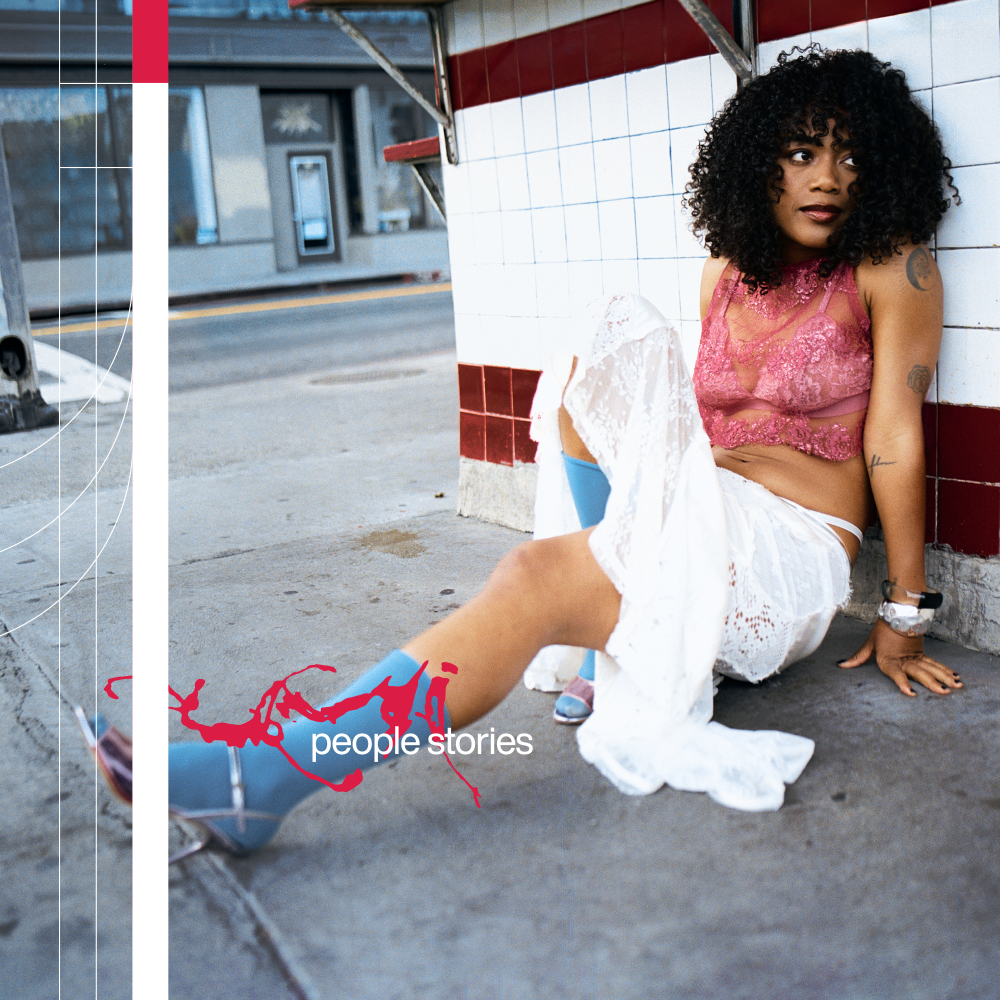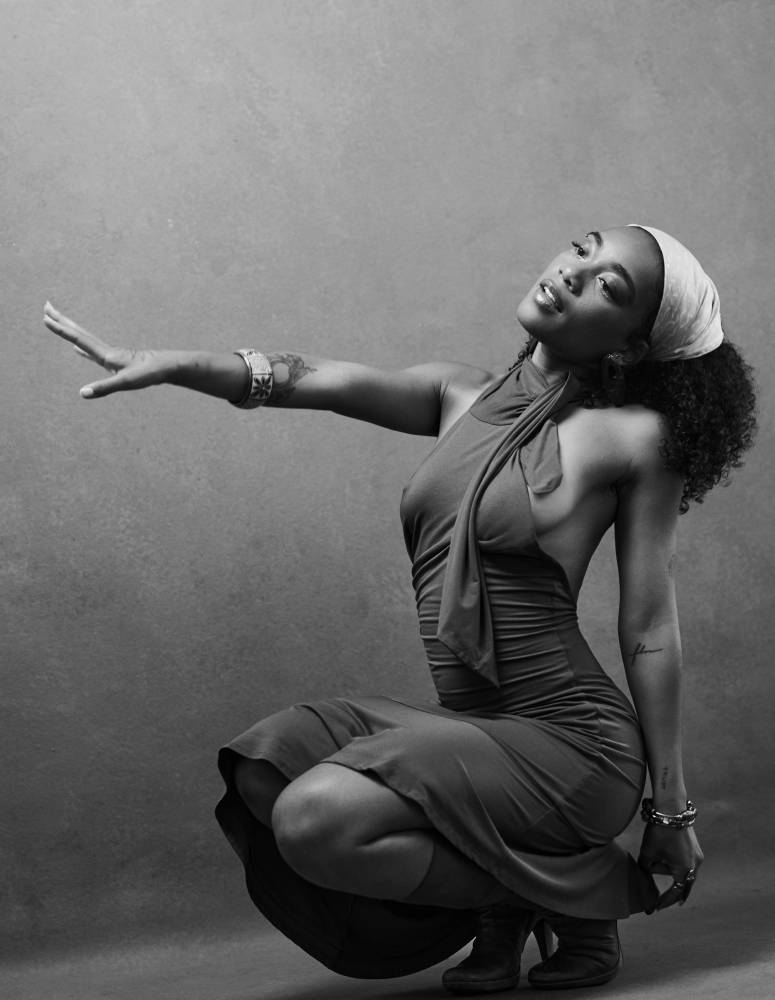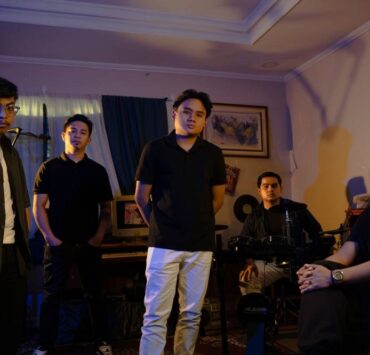Like the ocean she’s named after, Umi wants her music to reach distant shores

While on tour in Amsterdam a few years ago, American R&B singer Umi was approached by a couple who had met through a shared love for her music. Because they had gone to a Thai restaurant on their first date, they wondered if they could relive that experience with the special person who had brought them together.
Umi agreed. The next day, she brought her band along and joined the couple for dinner. As she listened to their love story over mango sticky rice—one of her favorite treats—something clicked. “I’m going to write a song about them,” she thought.
And she did. When she finally went into the studio to record the song—which she titled, of course, “Mango Sticky Rice”—Umi fell in love with the idea of capturing other people’s stories and memories through music. So much so that she was like, “You know what? I’m going to do an entire album like this.”
From that chance encounter came her sophomore album, “People Stories.” Inspired by the lives of fans and loved ones, the project saw Umi exploring “the depth of human experience and the interconnectedness of our stories” across 15 tracks. There are also reflections on ego, healing, and identity—all delivered in serene soundscapes that meld together soul, R&B, folk, and pop.

Both storyteller and narrator
In the process of crafting the album, Umi realized that, more than just a singer-songwriter, she views herself as “a storyteller and a narrator” of human experiences. And while those titles may overlap, Umi believes that they carry distinct nuances. Storytelling and narration, she feels, often compel us to look beyond ourselves and step into someone else’s world.
“And that all begins with empathy,” says Umi—the voice behind such hits as “Remember Me,” “Love Affair,” and “Wherever U R,” her collaboration with BTS’s V—in a recent Zoom interview with Lifestyle Inquirer.
The album also includes “Right Wrong,” a track inspired by Umi’s mother, who taught her to trust her inner voice. Then there’s “10 AM,” inspired by a friend who describes love as waking up next to someone on a slow Sunday morning, eating breakfast together, and knowing there’s nowhere else they would rather be.
“This album taught me that my fans go through the exact same things I do,” points out Umi, whose multicultural background—a Japanese mother and African American father—helped mold her sound and perspective.
“It’s how I know I’m not alone, whether I’m feeling depressed, happy, or in love,” she adds. “We’re all equal in feeling; it just so happens that I’m the one who puts it into music.”

Why is it important for you to step outside yourself and share other people’s stories?
Because many people feel lonely and isolated despite the instant connection the internet allows. We don’t really talk about ourselves—only about the shiny parts. And I don’t think you can really relate to perfection. The messy parts of being alive are what really connect us as people.
Do you feel like genuine communication can still be lacking, even with social media?
You scroll through photos and you purposely pick the one you look good in, or you edit your caption five or six times so it’s perfect. I even notice myself doing it sometimes. But in real life, it’s one shot—there’s no do-over.
We curate ourselves, and then, we forget that other people are curating themselves too. And then we’re like, “Why am I not perfect? Why didn’t I get it right?”
Your music has a calming quality. Do you see any connection between that and your cultural background?
My parents divorced when I was young, so I spent half the week with my mom and half with my dad. When I was with my mom, the culture was all around me—there was meditation everywhere.
I also think the Japanese language itself is peaceful and respectful. And without even realizing it, that just became part of who I am. My music, to me, feels like walking through Kyoto, wandering around temple grounds.
And from your father’s side?
[On] my dad’s side, being African American, I grew up going to church, singing in a gospel choir, and just having a soulful, community-oriented way of living. Whether it’s cookouts or just everyday life, community comes first. It’s not even a question.

So your artistry truly is a combination of both cultures.
I just know how to sing and express from my soul, which I learned from my dad’s side. Soul is just the way you exist.
From my mom’s side, I feel like I learned about intentionality—how to make a poster feel good when you look at it, or how to make a show feel good. Turning a space into a feeling is something Japanese culture has really figured out.
Combining those things is very much like me.
Your name, Umi, means “ocean” in Japanese. The ocean can be vast, mysterious, deep, and stormy. Do you feel like those qualities reflect who you are?
The more I get to know myself, the more I realize how perfect the name Umi is for me. The way I live my life is like the ocean—I just go with the flow. There’s so much depth of emotion in me. There’s just as much happiness as there is sadness.
My dream is for my music—like the ocean—to touch every place in the world.
How did your song with V in 2023 help you reach a wider audience? Any more dream collaborations?
Since “Wherever U R,” I have definitely noticed new people finding my music. That’s the beauty of collaboration—we can help introduce our communities to each other’s sound.
In Asia, I would love to do a song with Fujii Kaze and more members of BTS. In America, I would love to work with H.E.R., Jhené Aiko, Billie Eilish, and Frank Ocean—if he makes music again.
How do you define success? What do you want to achieve?
I’m going through this process of finding my sense of value within myself. But in terms of external goals, I would love to do arenas, have a top-five Billboard hit with this album, expand my community, and see more monthly streams.
I want to help people through my music and experience that, not just through the internet but in person.
















